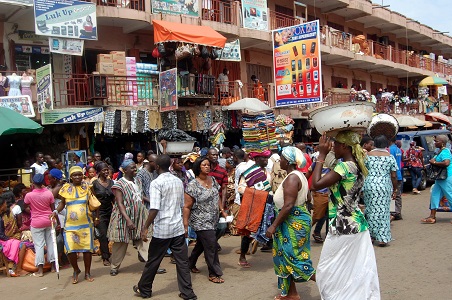Research Programme 2019-2024
Strident Africa: Societal and Environmental Change in the Context of 50 Centuries of History

Strident Africa is the title of the overarching research programme of the African Studies Centre Leiden for the years 2019-2024. The Netherlands has a long and enduring relationship with the African continent and a substantial proportion of its population is of African descent. The African Studies Centre Leiden is the only academic institution in the Netherlands dedicated solely to the study of Africa. In 2016 the ASCL became part of Leiden University, as an interfaculty institute, with its own research agenda, library acquisition policy, and teaching profile.
Rapid population growth
Africa may currently be considered to be a minor player on the international stage of economy and politics, yet its role appears set to increase dramatically in the coming decades, if only on account of its remarkable population growth. This undiminishing upsurge in population will lead to economies of scale and numbers that cannot be overlooked. In 1960, the African continent had 285 million inhabitants. Nearly sixty years later the population of Africa exceeds 1.3 billion, and is set to grow to 2.5 billion by 2050. This rapid population growth has led to urbanisation on a scale previously not experienced in Africa.
Natural resources and external actors
The urbanisation of Africa has immediate and long-term effects on the economies and environment of African countries. As the population of Africa continues to grow, so too does the impact on the natural resources of the continent. This exploitation of resources is exacerbated by external intervention which continues to ensure, not only that Africa continues to be a net-exporter of capital, but that the continent’s natural resources continue to be utilised and exported by external actors with allegiances that do not, in the first instance, lie with the continent and its peoples, let alone the environment. The extensive existence of rent-seeking states on the continent, in which support for legislation regulating the environmental impact of both internal and external actors is limited or non-existent, ensures that the consequences of climatic change are exacerbated in the interests of financial profit.
Mega-cities and new economies
Africa is in flux, partly as a consequence of demographic change, environmental degradation and insecurity, millions of people are on the move in Africa. The tremendous population flows and spectacular urbanisation rates on the continent are in part a direct consequence of the collapse of rural livelihoods, be they in farming, fishing or pastoralism. Africa’s future, it seems, will be an urban one. Central to Africa’s urbanisation are the rural-urban linkages, new economies, forms of governance, culture and society, that allow for and enable people to live in mega-cities in excess of ten million inhabitants.
Changing geo-political context
In summation, rapid and sustained demographic change across the African continent, has driven hitherto unseen rates of urbanisation, ever expanding economies of consumption, and exacerbated environmental change. This has taken place in an ever-changing geo-political context in which the hegemony of the West has increasingly been brought into question. To facilitate independent scientific research and documentation, of this ‘Strident Africa’, which will allow us to understand and contextualise the dramatic changes of the continent and its peoples, and to disseminate these findings to the academy, ministries, and as broad an audience as possible will continue to be the core task of the ASCL.

